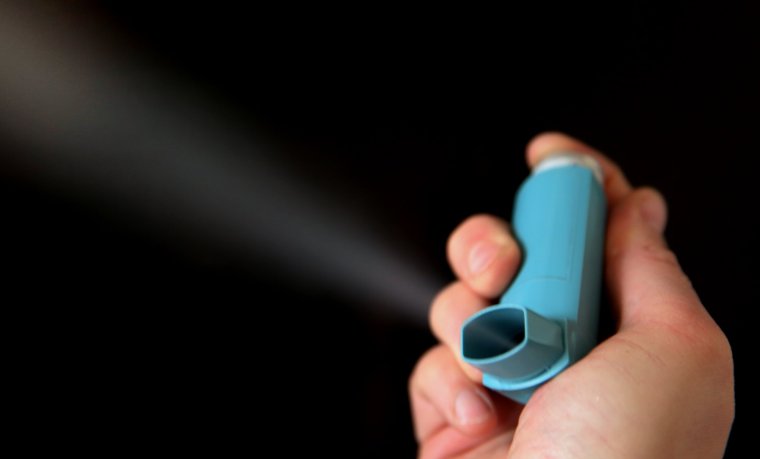This is Everyday Science with Clare Wilson, a subscriber-only newsletter from The i Paper. If you’d like to get this direct to your inbox, every single week, you can sign up here.
Hello, and welcome back to Everyday Science.
This week I enjoyed my first Christmas party of the year. Entirely coincidentally, I found out this week that the World Health Organisation’s (WHO) official list of all known medical conditions accepted a new entry two years ago: the hangover.
With another do in my diary tomorrow and several more planned for December, I thought it was time for a deep dive into exactly how the party season affects our bodies. Not for my personal benefit, of course – but for journalism.
(And if my editor is reading this, if I appear unusually subdued today, it’s because I think I’m coming down with something.)
A rather loose definition
The WHO now defines alcohol hangovers as “the combination of negative mental and physical symptoms experienced after a single episode of alcohol consumption, starting when blood alcohol concentration approaches zero”. In other words, you’ve sobered up but you’re not yet back to normal.
The definition has been kept loose because – as a lot of us can attest – hangovers can encompass so many different symptoms, including nausea, vomiting, headache, fatigue, and difficulties concentrating.
Unfortunately, there has been surprisingly little research into hangovers. This may be because, while they have been recognised as a medical condition, hangovers are often viewed as a relatively minor problem. A self-inflicted one, too.
But they deserve more research, not least because they can have a significant economic impact because of absenteeism and lower work productivity, said Dr Emmert Roberts, an addiction psychiatrist at King’s College London. “For something that’s so common, we don’t know a huge amount about it,” he said.
Should we be worried about the odd night of excess?
The immediate effects of drinking alcohol vary a lot from person to person, for reasons such as their initial levels of hydration, blood sugar, the amount of food in their stomach and their genetic ability to metabolise alcohol.
How much should we worry about the odd night of alcohol excess – for instance, when the drinks are free at the end-of-year office Christmas party?
Officially, of course, we shouldn’t do it. While doctors used to concern themselves just with total alcohol intake, we are now also told to avoid too much in one night – more than eight units in a single session for men, and six units for women, according to the NHS.
In terms of the negative consequences of a night on the sauce, the NHS focuses on the risks from intoxication, of accidents and loss of inhibitions leading to risky behaviour.
But there’s also an impact on the body, even in the short term. The most obvious and immediate health impact of excess booze is nausea and vomiting. This is primarily caused, not by alcohol itself, but its breakdown product, acetaldehyde. Acetaldehyde toxicity may also be partly responsible for nausea during the next day’s hangover.
Another contributor to hangovers is dehydration. Alcohol reduces levels of a kidney hormone with the end result being that we produce more urine. That contributes to many of the key symptoms, including headaches, dizziness and that delightful dry mouth the morning after.
More recently we have learnt that within hours of binge drinking, there are rises of bacterial toxins in the blood, suggesting bacteria leak out from the gut, probably because alcohol makes the gut lining more permeable, a study showed in 2014.
The bacterial toxins did not seem to cause any lasting damage, but they were linked with a rise in certain inflammatory biochemicals. This might help explain why long-term alcohol abuse aggravates many medical conditions, the researchers said.
Research on twins
There has been no research studying the impact of drinking to excess over multiple days of parties. It would be hard to imagine doing this in a placebo-controlled fashion, for one thing. But something that comes close is a project by alcohol specialist Dr Gautam Mehta at University College London, with the help of two identical twins, Drs Chris and Xand Van Tulleken.
For one month, both twins consumed what was in 2015 the upper limit of alcohol intake for men, 21 units a week. It has since been cut to 14 units.
But Chris consumed his alcohol quota at a steady rate of three units every day, while Xand was teetotal for most of the week, then drank all of his 21 units on Saturdays.
By the end of the month, Xand had much higher levels of bacterial toxins in his blood than Chris. “The periods of abstinence could not make up for the regular binges and the impact built up,” said Dr Mehta.
That’s something to think about for those of us who are likely to have some regular alcohol binges over the next few weeks.
How food can impact hangovers
Excess alcohol isn’t the only consequence of the Christmas party season, though. We might also end up having different food, and eating later than usual.
Regular mealtimes help to regulate our “body clocks”, so it is best to avoid eating late at night if you want to have a good night’s sleep and feel alert the next day, said Professor Alexandra Johnstone, a nutrition scientist at the University of Aberdeen.
This effect is compounded by alcohol, which can help people fall asleep more quickly initially, but tends to disturb sleep later on. And fatty or spicy party food can also trigger indigestion, which is not conducive to a good night’s rest, says Duane Mellor, a dietitian at Aston University.
Those suffering the next day should not look for medical remedies, though. While there are multiple supplements, probiotics and other remedies that are claimed to help with hangover symptoms, none are supported by rigorous placebo-controlled trials, according to a review of such research by Dr Roberts.
There are only three known tactics for reducing your risk of hangover, said Dr Roberts. We should avoid dehydration, by having plenty of soft drinks alongside the alcohol, and should avoid certain types of alcoholic drinks that are high in compounds called “congeners”.
Congeners are substances that are produced during the fermentation processes of several kinds of alcohol. They may make us feel worse because they interfere with the enzymes that normally break down alcohol.
The key thing to remember is that they are usually higher in drinks that are darker in colour, like red wine, whisky and tequila – not a problem for me as my usual poison is white wine or gin and tonic.
The third key element of Dr Roberts’s hangover avoidance strategy is, I am unsurprised to learn, just drinking less alcohol in the first place.
Great advice. I’ll try to bear that in mind tomorrow.
Other things I’ve written recently

We’re all used to hearing about the things we should be doing to save the planet: avoid flights and switch steaks for veggie burgers. But last week, asthma patients were told to avoid using inhalers that release greenhouse gases.
Women are also being told they should consider the climate in decisions on whether to bottle feed their babies and even how they give birth. We’ve heard of “greenwashing” – when companies make false claims their products have a low carbon footprint. In healthcare, we are seeing something more akin to “greenbullying”.
I’ve been watching

The Substance. I’m not usually good with horror, but the premise behind this Demi Moore film – about how societal pressure makes some women to go to extreme lengths to stay young-looking – meant I couldn’t stay away. I had to watch from behind my hands at times, but in the end I was glad I plucked up the courage.
This is Everyday Science with Clare Wilson, a subscriber-only newsletter from The i Paper. If you’d like to get this direct to your inbox, every single week, you can sign up here.



'President Musk' is flexing his muscles and revealing how weak Trump is